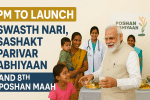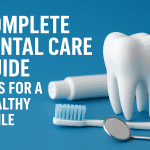![]()
10 Essential Health Tips for 2025
As global health priorities shift in 2025, individuals and communities face a complex mix of challenges—rising non-communicable diseases, climate-related health risks, changing dietary patterns, and mental health needs. The World Health Organization (WHO) continues to provide practical, evidence-based guidance to help people make healthier choices every day.
Below are 10 essential health tips for 2025, aligned with WHO recommendations and current global health evidence. Each tip includes practical actions you can take, why it matters, and links to authoritative WHO resources for further reading.
1. Prioritize Mental Health
Mental health is central to overall well-being. WHO stresses that stress, anxiety, and depression are rising worldwide and must be addressed proactively.
- Practice brief daily mindfulness or breathing exercises.
- Limit screen time and create digital-free periods each day.
- Reach out to friends, family, or a mental health professional when overwhelmed.
2. Eat a Balanced Diet with Local, Sustainable Foods
Healthy eating reduces the risk of malnutrition, obesity, and many chronic diseases. WHO guidance advocates for diets rich in whole foods and low in ultra-processed products.
- Fill half your plate with vegetables and fruits, and include whole grains and legumes.
- Minimize added sugars, excessive salt, and refined oils.
- Prefer seasonal, locally produced foods when possible for health and sustainability.
3. Stay Physically Active—Aim for 150 Minutes a Week
Physical activity helps prevent heart disease, diabetes, and some cancers and supports mental health. WHO recommends at least 150 minutes of moderate-intensity activity weekly for adults.
- Incorporate walking, cycling, dancing, or home workouts into your routine.
- Include muscle-strengthening exercises at least twice weekly.
- Break up long periods of sitting with short active breaks.
4. Get Regular Health Screenings
Early detection of conditions such as hypertension, diabetes, and cancers improves outcomes and lowers costs. Preventive screenings are a cornerstone of WHO’s approach to reducing the burden of non-communicable diseases (NCDs).
- Keep annual or periodic checkups for blood pressure, blood sugar, and cholesterol.
- Follow age- and risk-appropriate cancer screening guidelines (e.g., cervical, breast).
- Maintain dental and eye checkups to prevent complications.
5. Strengthen Immunity Through Vaccination
Vaccination remains one of the most effective public-health tools. WHO recommends keeping routine immunizations up to date and following national guidance for boosters (for example, seasonal influenza or COVID-19 boosters where recommended).
- Verify your and your children’s immunization records regularly.
- Accept recommended vaccines for your age and medical conditions.
6. Protect Yourself from Climate-Related Health Risks
Climate change is increasingly a health issue—heatwaves, air pollution, flooding, and changing patterns of vector-borne disease affect many communities.
- Stay hydrated and avoid outdoor activity during extreme heat.
- Use masks or air filters on high pollution days; follow local air quality advisories.
- Use mosquito protection and eliminate standing water to reduce vector-borne disease risk in vulnerable areas.
7. Prioritize Sleep—Aim for 7–9 Hours
Sleep is essential for immune function, mood regulation, and metabolic health. WHO and allied public-health guidance emphasize regular, quality sleep as a pillar of a healthy lifestyle.
- Keep a consistent sleep schedule and create a calming bedtime routine.
- Avoid large meals, caffeine, and screens close to bedtime.
- Keep your sleep environment dark, quiet, and comfortable.
8. Limit Alcohol and Quit Tobacco
Tobacco and harmful alcohol use are leading causes of preventable disease and premature death. WHO recommendations are clear: quitting tobacco and minimizing alcohol intake deliver major health gains.
- Seek cessation support for tobacco use—counseling, nicotine replacement, or medical help.
- If you consume alcohol, follow national limits and avoid binge patterns.
9. Practice Good Hygiene and Food Safety
Simple hygiene and safe food handling prevent many infections. Lessons from the COVID-19 pandemic still apply: hand hygiene, safe food preparation, and access to clean water remain vital.
- Wash hands with soap and water, particularly before eating and after using the restroom.
- Cook foods to safe temperatures and store perishables properly.
- Ensure drinking water is clean and treated if necessary.
10. Build Strong Social Connections & Community Support
Social ties and community involvement strongly influence mental and physical health. WHO highlights social determinants of health as critical drivers of well-being.
- Maintain relationships with family and friends; participate in community activities.
- Volunteer or join local groups to build purpose and resilience.
- Seek help when facing prolonged stress, anxiety, or depressive symptoms.
Learn more: WHO – Social determinants of health.
Practical Tips to Put These Recommendations into Action
Changing behavior is often the hardest part. Here are practical, small steps that add up:
- Meal planning: Build weekly menus around vegetables, legumes, and whole grains.
- Active workday: Take short walking breaks and use standing desks where possible.
- Sleep hygiene: Set a fixed bedtime and a short pre-sleep wind-down routine.
- Mental health: Start with 5 minutes of mindfulness daily and gradually increase.
- Screenings: Book annual health checks and keep records to track progress.
Challenges, Equity and Policy Considerations
WHO guidance is universal but must be adapted to local realities. Important considerations include:
- Access & affordability: Healthy foods, clean water, safe spaces for activity, and healthcare access are unevenly distributed. Policy action is needed to reduce inequities.
- Cultural relevance: Health advice should be adapted to cultural diets and lifestyles to be effective and acceptable.
- Behavior change: Long-term changes require environmental supports—safe neighborhoods, healthy school meals, and restrictions on unhealthy food marketing to children.
Conclusion
WHO’s health guidance for 2025 reinforces familiar but crucial messages: a balanced diet, regular activity, mental care, preventive screenings, vaccinations, and protection from climate and environmental risks. When combined with supportive public policies and community action, these personal behaviors can reduce disease burden and improve quality of life.
For more detailed guidance and regional resources, visit the WHO pages linked throughout this article and consult local health authorities for country-specific recommendations.
For more health information: Click here















